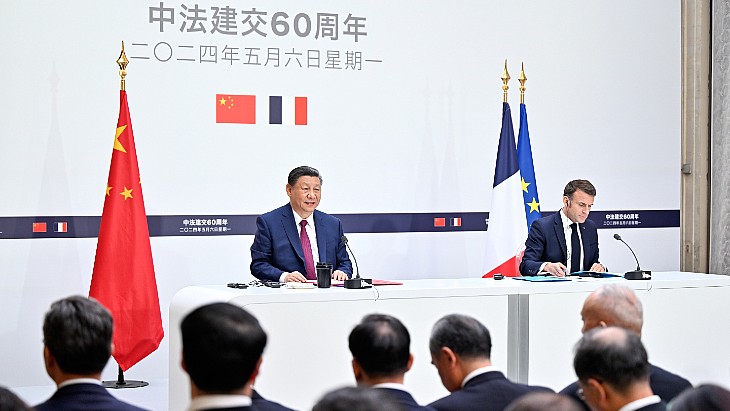Russia and China sign enrichment plant agreement
During a state visit to China, Russian officials have signed a $1 billion agreement regarding technical assistance for an enrichment plant and supplies of Russian-enriched uranium to China.
China and Russia signed an agreement on 23 May regarding technical assistance for the construction of phase four of the gaseous uranium enrichment plant in China and supplies of Russian enriched uranium to China.
The agreement sets out the baseline terms and conditions of contracts, which are valued at over $1 billion. The agreement was signed by Alexander Grigoriev, director general of Techsnabexport (Tenex) and Chen Xin Yang, president of China Nuclear Energy Industry Corporation (CNEIC). It was signed during a visit to Beijing of Russian President Dmitry Medvedev, his first overseas visit since succeeding Vladimir Putin.
At the end of Medvedev's visit, a joint statement by Medvedev and Chinese President Hu Jintao was issued. It stated: "The heads of state consider cooperation in nuclear power to be a priority area of economic cooperation, and express their satisfaction with the success that has been achieved in this sphere, and the readiness of the two countries to continue mutually beneficial cooperation."
Three phases of the gaseous centrifuge enrichment plant have already been built in China under the framework of a 1992 Russian-Chinese intergovernmental agreement and a supplemental agreement in 1996. In October 1996, phase one was constructed to produce 200,000 separative work units (SWU) per year in Hanzhun, southeastern Shaanxi province. The Hanzhun site is under International Atomic Energy Agency (IAEA) safeguards. Phase two added capacity of 300,000 SWU per year at the same site in 1998. Phase three added 500,000 SWU per year capacity in Lanzhou, Gansu province, in 2001. The Lanzhou plant started in 1964 for military use and operated commercially between 1980 and 1997 using Soviet-era diffusion technology.
In November 2007, Rosatom's director Sergey Kiriyenko and Zhan Qingwei, the chairman of the Committee of Science, Technology, and Industry for National Defence of China, signed a protocol to the intergovernmental agreement of 1992 regarding the gaseous centrifuge plant construction. At that time, Tenex and CNEIC signed a framework agreement regarding the technical assistance to China in constructing phase four of the plant in Hanzhun, adding a further 500,000 SWU of capacity. The agreement stated the intent of Tenex and CNEIC to finalize the plant construction contracts and eleven-year supplies of uranium products for Chinese nuclear power plant needs commencing in 2010.
Sergei Kiriyenko, head of the Rosatom corporation, told the Itar-Tass news agency, "This agreement is of systematic nature, as it envisages the construction of a uranium enrichment plant and long-term contracts on Russia's low-enriched uranium deliveries for the next ten years." He added, "This is an important experience for us, as we had ample capacities in the country in the past few years, but we have not built complete uranium enrichment plants yet. It is an interesting project in terms of engineering – to build a modern uranium enrichment plant from scratch."
Meanwhile, Russia has been discussing cooperation in nuclear energy with Mongolia. Sanj Bayar, Mongolia's prime minister, said that Russia and Mongolia are planning to jointly develop uranium deposits in Mongolia. However, he stressed that this cooperation could not take place until Mongolia introduced legislation concerning uranium.
Bayar told Prime Tass, "In order to successfully develop our capacities, we must elaborate a specific state policy as we are planning not only to mine uranium but also to build small nuclear power plants and Russia has unique - the world's best - technologies in this sphere."









_66488.jpg)


